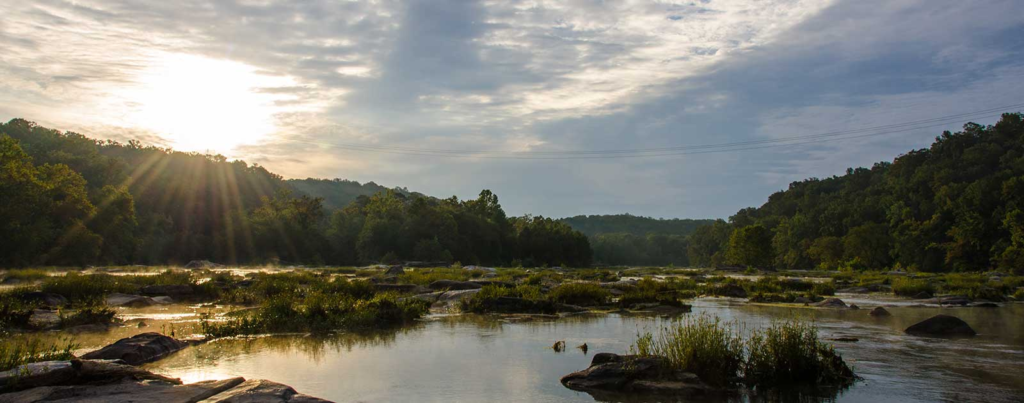By Confronting Climate Change, We Will Make Our City an Even Better Place to Call Home

We all know that climate change poses an existential threat to humanity and ecosystems. We have an obligation to act quickly to reduce carbon emissions and transition to renewable energy in order to safeguard the future for our children and subsequent generations. Even as we do so, our climate will continue to warm due to past emissions already in the atmosphere, meaning that Fredericksburg will also need to take proactive measures to adapt to the more intense storms, greater flooding, and hotter summers brought about with climate change.
The good news is that we can do these things. We can act to significantly reduce emissions and build a more resilient community. This website was created to share a positive vision of the future for Fredericksburg. We asked residents with local expertise on selected issues to imagine that Fredericksburg, by the year 2030, was successfully confronting climate change and other interrelated environmental problems.
The result is an inspiring vision of Fredericksburg’s future. It’s a vision of a city that’s increasingly powered by renewable energy and one that is moving towards a circular economy, recycling and composting waste rather than throwing it in the dump. In this vision, Fredericksburg is a vibrant urban hub with more affordable housing and a transportation model that prioritizes mass transit, walking, and biking. It’s a city that treasures its forests and river, conserving open space and increasing its tree canopy. It’s a city that is making good on its commitment to justice and equity, working to ensure that all residents have a voice in environmental decision-making and that everyone benefits from the transitions ahead. This is a vision of a city that knows the value of local food and agriculture, as it works to support local farmers, farmers markets, and gardeners.
It’s important to note that the authors for each section of this website speak only for themselves. There are many diverse viewpoints and ideas held by members of our community on these issues. And others who share similar visions of the future might advocate for different policy recommendations in order to get there. These statements are in no way meant to be definitive. The goal here is simply to start a conversation about how our city can proactively and comprehensively respond to climate change.
There are many reasons to worry about global warming and the risks it poses. But there’s no time to despair. As we confront climate change, we have an opportunity to save what we love about this city and to make it an even better place to live.
Eric Bonds, Associate Professor of Sociology at UMW
Pamela Grothe, Assistant Professor of Earth Sciences at UMW
Michael Reno, Lecturer of Philosophy at UMW
Charlie Sharpless, Assistant Director for Research, Andlinger Center for Energy & the Environment at Princeton University